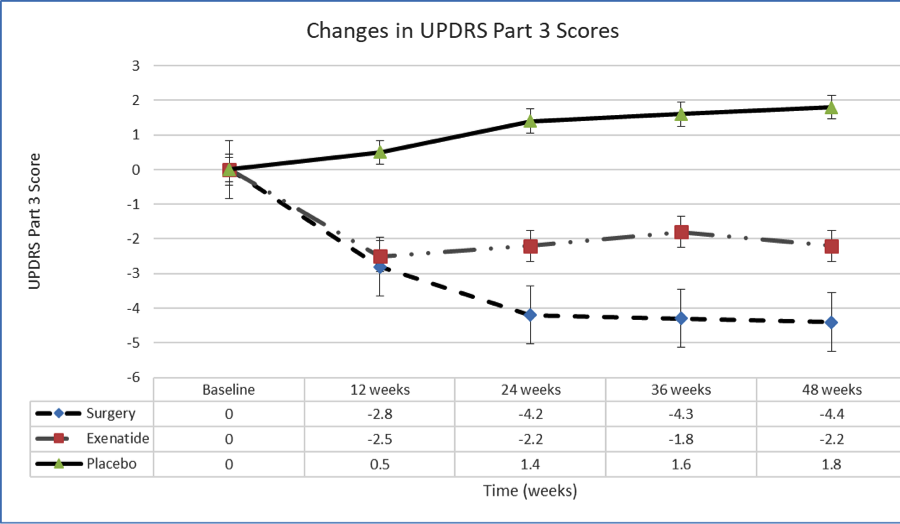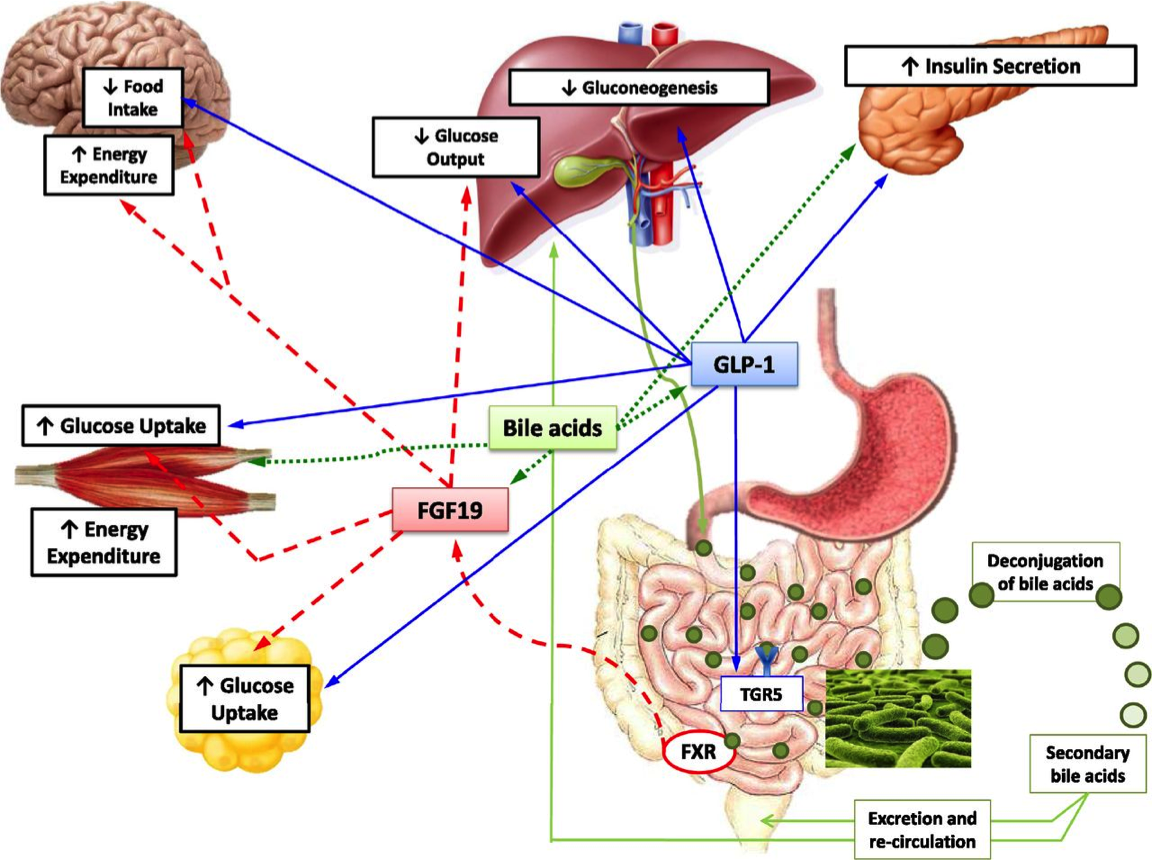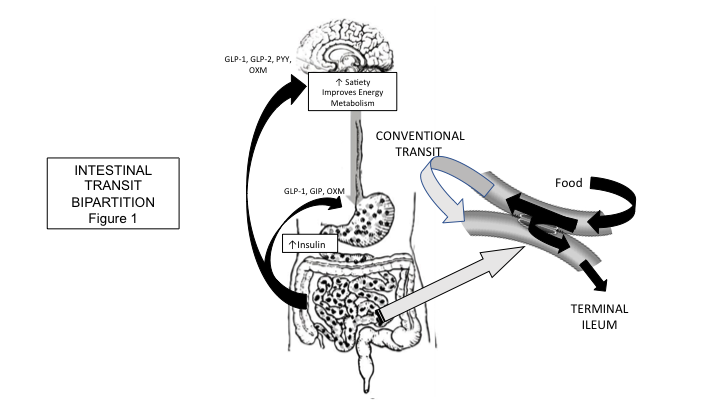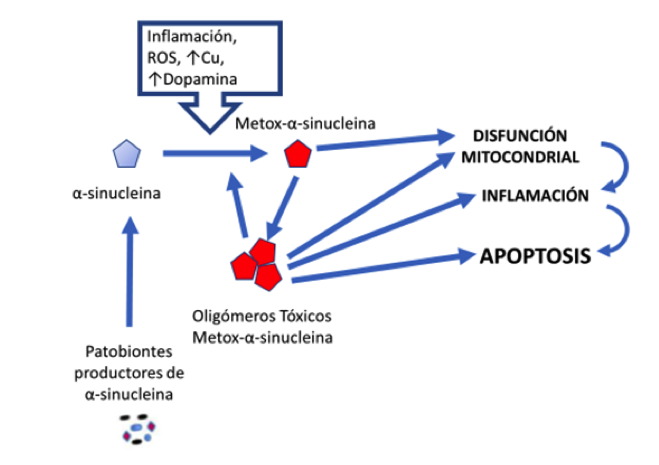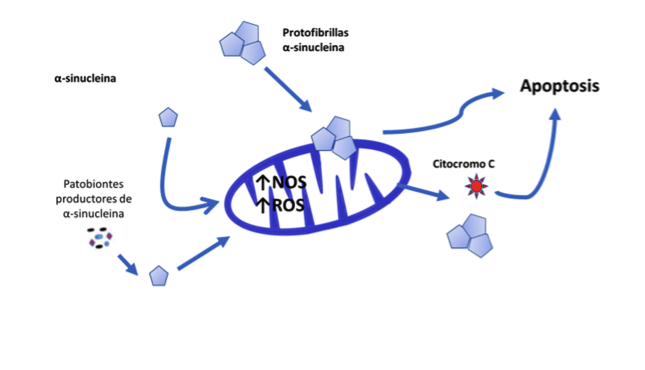Session Information
Date: Wednesday, September 25, 2019
Session Title: Surgical Therapy
Session Time: 1:15pm-2:45pm
Location: Les Muses Terrace, Level 3
Objective: To explore the effect of metabolic surgery (Bipartition of Intestinal Transit) on Parkinson’s Disease (PD). To compare the effects observed with those presented in patients with PD, managed with Exenatide (analogs of GLP-1, an enterohormone).
Background: This is the first series of patients with PD undergoing metabolic surgery in order to modify the evolution of their condition. Metabolic surgery favors changes that can prevent neurodegeneration and even favor neuro-regeneration. It has been verified that the primary bile acids (ursodeoxycholic acid) and the products of their conjugation can reduce the proinflammatory state, decrease the concentration of tumor necrosis factor and reduce the levels of nuclear factor kappa-beta, as well as decrease the apoptosis via the caspases3 and reestablish mitochondrial function. In the other hand, exposure to high concentrations of enterohormones or their analogs may favor motor and cognitive advantages in patients with PD. However, dual analogs (GLP-1 / GIP) show better performance than GLP-1 analogs, increasing cell populations that express tiroxin hydroxylase in the murine model. Our results suggest, at least, the need to conduct a further study to verify our findings.
Method: 5 patients with clinical Parkinson’s Disease 2-3 from Hoen & Yahr. Undergoing Bipartition of Intestinal Transit (Figure 3). 1-year follow-up with management established by the Department of Neurology and surveillance by the Department of Endocrine Surgery. Graphpath (www.graphpad.com) and Wilcoxon and U of Mann Whitney tests were used to analyze the results of the Unified Parkinson’s Disease Ranking Scale (UPDRS).
Results: The 5 patients were operated on without presenting major complications. No patient developed malnutrition or malabsorption. The dose of Levo / carbidopa was reduced to 25% of the preoperative levels. During follow-up, we obtained: a) an improvement in its performance in part 3 of the UPDRS, in addition to a b) statistically significant improvement when compared with the results of patients undergoing Exenatide. (Figure 4).
Conclusion: The bipartition of intestinal transit is a pure metabolic surgery procedure that favors an improvement in the motor performance of patients with Parkinson’s disease. The performance of the bipartite intestinal transit is statistically superior to that of exenatide to improve the clinical conditions of patients with Parkinson’s disease.
References: 1. Houser MC NPJ Parkinson´s Disease 2017;3:3 2. Felice VD et al. Parkinsons & Rel Dis 2016;27:1-8 3. Abdelkader NF et al. Mol Neurobiol 2015 doi:10.1007/s12035-014-9043-8 4. Xavier JM et al. Cell Cyce 2014 doi:10.4161/15384101.2014.962951 5. Aviles Olmos I, et al. J Parkinson´s Dis 2014;4:337-344 6. Athauda D et al. Lancet 2017;390 (10103):1664-75 7. Feng P et al. Neuropharmacol 2018;133:385-94
To cite this abstract in AMA style:
C. Jauregui Pasache, W. Kunz Martínez, A. Pérez Pacheco. Metabolic Surgery in the adjuvant management of Parkinson’s Disease [abstract]. Mov Disord. 2019; 34 (suppl 2). https://www.mdsabstracts.org/abstract/metabolic-surgery-in-the-adjuvant-management-of-parkinsons-disease/. Accessed April 2, 2025.« Back to 2019 International Congress
MDS Abstracts - https://www.mdsabstracts.org/abstract/metabolic-surgery-in-the-adjuvant-management-of-parkinsons-disease/

